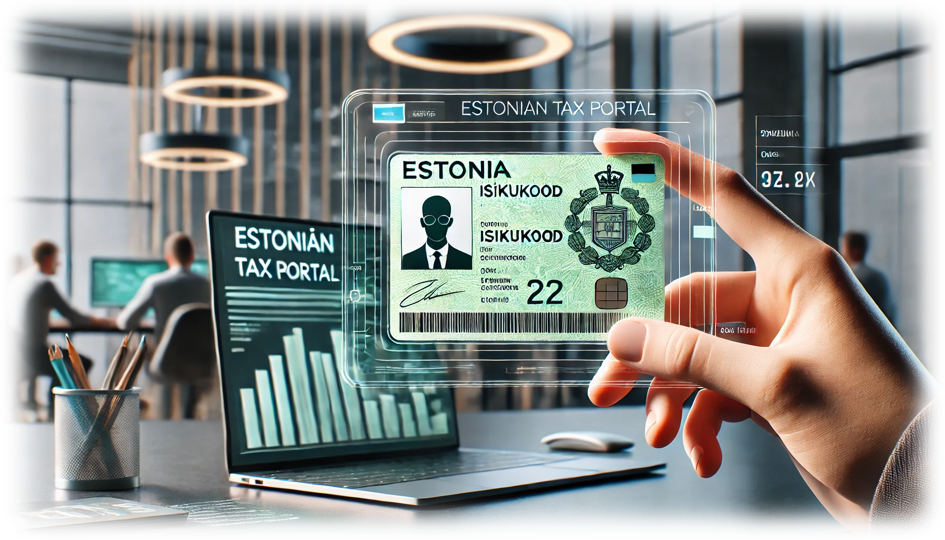Tax Identification Numbers (TINs) are used internationally but some countries have alternative systems. Estonia’s tax system for example uses personal and company registration codes instead of a traditional TIN. As experts in accounting services and business formation in Estonia we will explain how these codes work, their role in tax compliance and importance for companies operating in Estonia.
What Is a Tax Id Number?
Tax authorities use a powerful tool called a Tax Identification Number or TIN to identify people and control their tax responsibilities. TINs vary in structure and style according to each country’s legislation and serve as unique identifiers for individuals and legal entities in tax related processes.
Common examples of TINs are the Social Security Number (SSN) in the US, the Unique Taxpayer Reference (UTR) in the UK and the Permanent Account Number (PAN) in India. These identifiers help authorities track financial activities and ensure tax compliance.
There is no separate TIN in Estonia
Estonia does not have a separate TIN like many other countries. For tax purposes the Estonian Tax and Customs Board use other identifying codes. This is the universal personal code, or “isikukood,” for natural persons; for legal entities it is the registry code, or “registrikood.”
These codes are automatically assigned at birth for individuals and upon corporate registration. In all financial, legal and administrative matters in Estonia they serve as official IDs.
Personal Code as Individual Tax ID
The “isikukood” is an 11-digit code given to each person in Estonia. The way this personal code is written reveals important personal information including gender and birth date. Apart from tax management the isikukood is used as an identifying tool in many state and private establishments.
Registration Code as Company Tax Identity
The 8-digit registration number given to companies registered in the Estonian Business Register is called the “registrikood”. The Tax and Customs Board, and other government and commercial entities use this code to ensure tax management and business operations; it also uniquely identifies the legal entity.
International Use
Not only are personal numbers for people in Estonia and registry codes for companies important for home use but they also play a big role in foreign trade. Tax compliance within the European Union requires verifying VAT numbers across several EU Member States. These special codes ensure compliance and verification in global corporate transactions and help with seamless cross border contacts.
For example Estonian registration and personal codes provide a uniform way of identification verification when forming international contracts or working with foreign companies therefore fostering trust and openness. This seamless integration with global networks shows how efficient and global Estonia’s identity system is.
International Standards
Tax identification is a key component of international tax compliance and different countries use different approaches depending on global standards. Under programs like the Common Reporting Standard (CRS) the OECD has developed a framework for Tax Identification Numbers (TINs) that ensures consistency across countries therefore supporting tax reporting and openness. While some countries like Estonia use different identification methods to achieve the same goal others issue TINs in different forms.
The OECD provides information on how countries handle taxpayer identification in their tax systems, the official OECD Tax Identification Numbers page or European Comission webpage has more information on TINs used in different jurisdictions.
Conclusion
In the end Estonia’s innovative approach to tax administration is shown by its use of personal and registration codes instead of a traditional TIN. These IDs not only simplify local tax procedures but also enable fast and secure global company activities.
Knowing these special codes is essential for anyone trying to navigate Estonia’s tax scene—through company formation or ongoing accounting needs. Our expertise in business services and accounting ensures you are ready to fully benefit from Estonia’s modern and efficient tax system.

